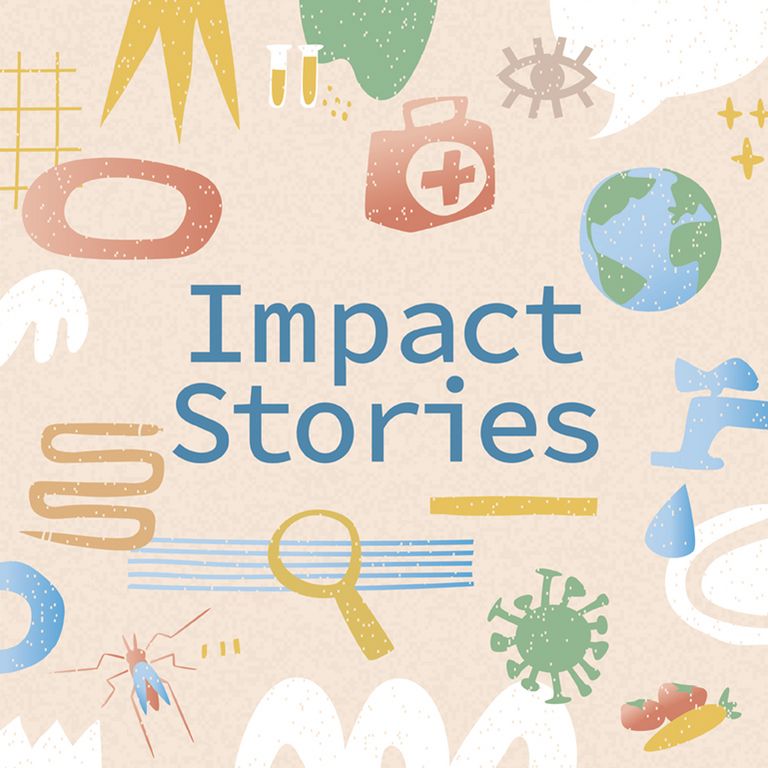


Professor Kelly Chibale is the driving force behind H3D, the drug discovery and development centre at the University of Cape Town, South Africa. He is dedicated to the development of new drugs to fight infectious diseases of poverty that are prevalent in Africa, including MMV390048, the first anti-malarial drug ever to be validated in a Phase I trial in Africa. In 2018 he was recognized as one of Fortune magazine’s top 50 ‘World’s Greatest Leaders’. Join me as I delve into the life of Kelly Chibale.
Learning to Fail Your Way to Success
Kelly Chibale was – to say the least – not born into science. Yet, he has become one of the most influential researchers in the field of drug discovery and development globally. Born in a rural part of Zambia, Kelly’s childhood was a struggle for bare survival. There was no running water, let alone television to provide entertainment. Instead, dusty roads, poverty and violence. “Education, which was free at the time, was the only way out of poverty for me,” Kelly Chibale recalls. Secondary school awakened in him a talent and fascination for chemistry. Mixing liquids to make them appear in new colours turned out to be a real miracle.
"Education, which was free at the time, was the
only way out of poverty for me."
Chibale studied chemistry at the University of Zambia and completed a PhD at the University of Cambridge in the United Kingdom. As a postdoctoral researcher at the Scripps Research Institute in the United States of America (USA), he experimented with angiogenesis inhibitors, which prevent tumour cells from developing new blood vessels. After a stint at the University of California, San Francisco in the USA, in 1996, Chibale returned to Africa. In 2007 he became a full professor at the University of Cape Town. He dedicated himself to the discovery and development of new drugs against malaria and other infectious diseases of poverty. This career move was not based on an idealistic sentiment, but a hard economic calculation. Chibale benefited from a grant from the South African National Research Foundation and Wellcome Trust, which was increasingly investing in strengthening health research capacity in South Africa. “I have a lot of ideas, but if there is no money, I am just hallucinating,” he says with a contagious smile.
H3D – A Unique Centre for Drug Development in Africa
Of course, it was more than just economics that hastened Chibale and his family’s life. An important underlying driver was global inequality, especially in the field of drug research and development. Indeed, the majority of drugs for the global South are developed in the industrialized North and validated in clinical trials. Patients in Africa are people with different genetic dispositions and life circumstances. “You have to understand the patients and not just to import drugs,” Chibale emphasises. That’s why he toyed with the idea of setting up a drug discovery and development centre at the University of Cape Town. The time was right, as the University of Cape Town aimed to embark on large interdisciplinary programmes – just the kind of stuff Chibale was ready to jump on.
"I was also interested in turning the widespread Afro-pessimism – the image of Africa as a lost continent – into something more positive and to show people abroad as well as my own fellow citizens that cutting-edge science is possible here too."
The South African government was persuaded to invest into the necessary infrastructure of the new centre. The Holistic Drug Discovery and Development (H3D) was launched in 2010. It rapidly transitioned from a kind of a ‘start-up’ with five employees to a bustling 75 staff and postdoctoral research fellows a decade later, and remains the only centre of its kind on the African continent. “I was also interested in turning the widespread Afro-pessimism – the image of Africa as a lost continent – into something more positive and to show people abroad as well as my own fellow citizens that cutting-edge science is possible here too,” Chibale proudly says.
At the core of H3D are international partnerships. Key partners include the Bill & Melinda Gates Foundation, Medicines for Malaria Venture (MMV), a product development partnership based in Geneva, Novartis in Basel, Merck Global Health Institute in Geneva and Swiss TPH. Jürg Utzinger, Director of Swiss TPH and Professor at the University of Basel states: “Kelly is not only is a superb chemist, but also sheer pleasure to work with. He is a source of inspiration, a real global leader with a unique capacity to bring people together – regardless of age, gender and geography – to foster productive partnerships that make a difference. Swiss TPH is privileged to collaborate with Kelly and his team and his contributions for malaria and schistosomiasis drug discovery and development have been seminal.”
New Drugs against Malaria
The success of the H3D was not long in coming. In 2012, Chibale’s team discovered MMV390048, a new anti-malarial drug from the aminopyridine group that can be administered as a single dose. MMV390048 is the first anti-malarial drug ever to be validated in a Phase I trial in Africa. “In drug discovery you have to kiss many frogs before you meet the prince,” Chibale says. That’s precisely why he describes the discovery of MMV390048 as a miracle. He quotes Louis Pasteur, one of his favourite inspirations: “Chance favours the prepared mind.” Despite his many successes, Chibale has his feet on the ground. He is imbued with a modesty that never seems forced, but rather is fed by the personal insight that his talent and knowledge have little to do with his own efforts, but were given to him by a higher power on life’s path. “I always knew that I know nothing, which gave me the privilege to learn,” he says. His key to success? “Learning to fail your way to success!”